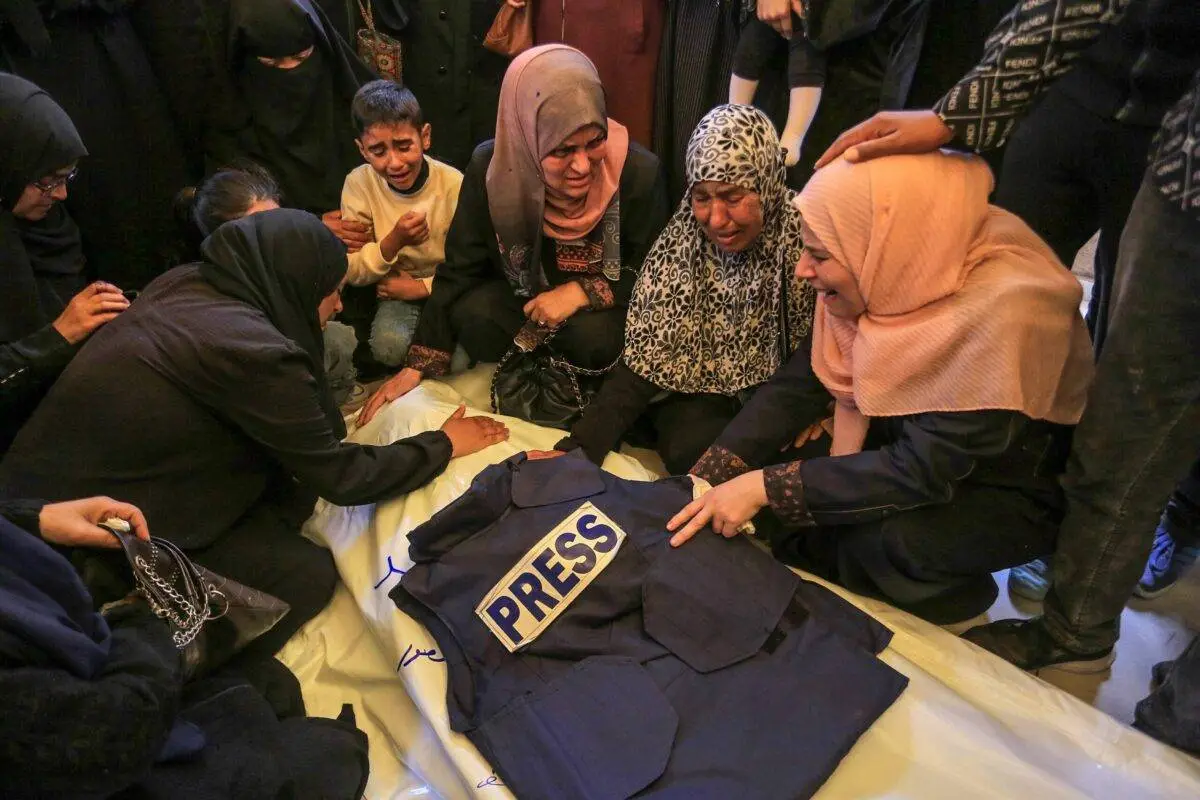In recent days, widespread outrage has erupted following Israel’s controversial attack on a tent used by journalists covering the ongoing conflict in the region. This incident, which occurred in Khan Yunis, has raised serious concerns regarding the safety of media personnel operating in conflict zones. Rights groups and media organizations have expressed their condemnation, arguing that such actions represent a blatant disregard for the freedom of the press and the safety of those who endeavor to report on the situation.
Eyewitness accounts reveal that the tent, which served as a base for several international journalists, was struck during an airstrike, leading to significant damage and injuries among the occupants. The journalists inside were reportedly engaged in their work, documenting the ongoing violence and humanitarian crisis when the attack took place.
According to a spokesperson for a leading human rights organization, “Attacking journalists is an attack on the truth; it hampers the ability of the world to grasp what is happening on the ground.” This sentiment echoes a broader concern that violent actions against journalists not only endanger lives but also obstruct the flow of information essential for public awareness and accountability.
Attacks on journalists undermine truth and hinder the world’s understanding of critical events on the ground.
The Israeli government has defended its military actions, stating that the operations are aimed at neutralizing threats posed by militant groups in the area. It has also claimed that they take precautions to minimize civilian casualties. However, critics argue that the lack of transparency regarding the decision-making process in such strikes raises questions about the legitimacy of these claims.
A representative from an international press freedom group noted, “While we comprehend the complexities of military operations, the targeting of media personnel cannot be justified under any circumstances.”
In light of this incident, various media outlets have called for a thorough investigation into the attack, urging the international community to hold those responsible accountable. The attack on the journalists’ tent is not an isolated event; it is part of a worrying trend in which journalists are increasingly becoming targets in conflict zones worldwide.
As the situation in Khan Yunis continues to unfold, the implications of this attack may resonate far beyond the immediate aftermath, potentially affecting how journalists operate in similar environments in the future.
The response from global human rights advocates and media organizations highlights an urgent need for protective measures to guarantee the safety and rights of journalists, who play an essential role in informing the public about critical events and human rights violations in conflict-affected regions.














